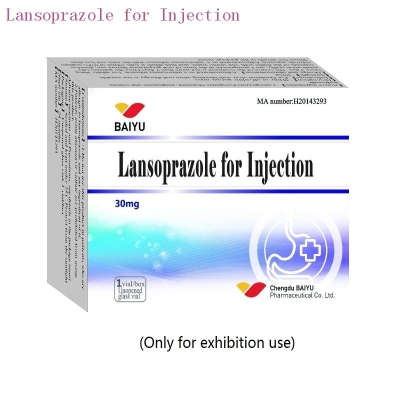-
Categories
-
Pharmaceutical Intermediates
-
Active Pharmaceutical Ingredients
-
Food Additives
- Industrial Coatings
- Agrochemicals
- Dyes and Pigments
- Surfactant
- Flavors and Fragrances
- Chemical Reagents
- Catalyst and Auxiliary
- Natural Products
- Inorganic Chemistry
-
Organic Chemistry
-
Biochemical Engineering
- Analytical Chemistry
- Cosmetic Ingredient
-
Pharmaceutical Intermediates
Promotion
ECHEMI Mall
Wholesale
Weekly Price
Exhibition
News
-
Trade Service
Cirrhosis associated immune dysfunction (CAID) is associated with the progression of acute decompensation (AD) and can affect the risk
of death from bacterial infections.
However, the underlying mechanisms of CAID are unknown, but suggest that both the innate and adaptive immune systems are extensively disturbed
.
The severity of CAID increases with the severity of cirrhosis and can present as immune paralysis
in patients with advanced acute-on-chronic liver failure (ACLF).
ACLF is a syndrome characterized by flare-ups, multiple organ failure, and systemic inflammation of bacterial infections that are the most common precipitating events in AD patients in about 30% of AD patients, and no precipitating disease is found in consideration with cirrhosis CAID-related, which may be infections other than those caused by bacteria, such as viral infections, are involved as
triggers.
Although the effects of bacterial infections on cirrhosis are well described, the effects of non-hepatotropic virus (NHVs) infections are unclear
.
On October 26, 2022, Jinjun Chen of Southern Medical University and Rajiv Jaran collaborated to publish an online publication in the Journal of Hepatology Research paper "Prognostic and therapeutic significance of microbial cell-free DNA in plasma of people with acutely decompensated cirrhosis," which utilizes metagenomic next-generation sequencing (mNGS) evaluated genomic fragments of circulating microorganisms in patients with acute decompensation of liver cirrhosis, and the results showed that NHVs may have a pathogenic role
in the complication of AD.
Further validation is needed to determine whether this should be included in the day-to-day management
of AD patients.
Previous studies have focused on the potential role of hepatophilic virus as a potential precipitator for AD.
However, infections of non-hepatotropic viruses (NHVs), such as herpes simplex virus, human cytomegalovirus, human parvovirus B19, and Epstein-Barr virus, are known to cause acute liver failure and their role is unclear
.
Metagenomic next-generation sequencing (mNGS) is an important culture-independent technique that can simultaneously detect cell-free DNA (cfDNA) from clinical samples for almost all known pathogens Sequencing can diagnose several infections
.
The clinical application of mNGS in patients with cirrhosis has been less research-related, and the main objective of this study is to comprehensively evaluate circulating microbial genomic fragments in patients with acute decompensated cirrhosis by sequencing plasma microbial cfDNA and link
them to clinical outcomes.
The secondary objective was to verify the potential effects of CMV reactivation, a known NHV versus existing antiviral drugs, in determining the prognosis
of patients with decompensated cirrhosis.
In this study, researchers performed plasma mNGS on
129 patients with cirrhosis AD.
Among them, 10 healthy volunteers and 20, 39 and 81 patients with stable cirrhosis, severe sepsis and hematological malignancy were used as controls
, respectively.
Validation analysis of human cytomegalovirus (CMV) reactivation was performed in one validation cohort (n = 58) and exploratory treatment
was performed.
The results showed that 188 microorganisms, including viruses (58.
0%), bacteria (34.
1%), and fungi, were detected in 74.
4% (96/129) of patients in the study cohort (7.
4%) and chlamydia (0.
5%)
.
Overview of the study (Image from Journal of Hepatology).
Interestingly, patients with AD have features of NHV, which is the most common form of NHV, which is associated with the clinical response of empirical antibiotic therapy, progression to acute Chronic liver failure (ACLF) is associated
with 90-day mortality.
NHV features in patients with ACLF are similar
to those in patients with sepsis and hematologic malignancies.
In the validation cohort, 24.
1% (14/58) of patients detected treatable NHV, CMV
.
Of the 14 cases in which CMV was detected by mNGS, 9 were by DNA RT-PCR or The pp65 antigenemia test was further verified
.
Three patients with cytomegalovirus reactivation received ganciclovir exploratory therapy, and the clinical effect was obvious
.
An important finding of this study is that the NHV features observed in patients with ACLF are similar to those with sepsis or hematologic malignancies, and that NHV features correlate
with clinical outcomes.
Plasma mNGS identified various genomic fragments of NHV known to cause chronic human infection, such as CMV, EBV, TTV and human parvovirus B19
.
CMV viremia was the most common in this study and was associated
with the progression of acute decompensated cirrhosis.
CMV can cause cholestasis, worsening liver injury, portal vein thrombosis, and pneumonia, and can increase all-cause mortality
.
Due to the lack of data on specific tissue lesions such as liver or intestinal histology, current studies cannot diagnose whether CMV infection is associated with
CMV disease.
Taken together, the study used a non-targeted plasma mNGS approach targeting circulating microbial genomic fragments and suggested that AD patients, particularly those with ACLF, had distinct NHV signatures, which may have led AD complicates the course of the disease, an observation that was validated
in another prospective study.
Further refinement and validation are needed to define the clinical significance of testing for the daily management
of patients with NHVs AD in the future.
Original link:
#







